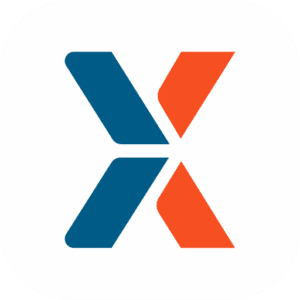Executive Summary
A growing small business successfully transitioned from paper-based procurement processes to a comprehensive digital procurement management system. The implementation addressed key challenges including manual approval workflows, lack of real-time visibility, and integration requirements with existing accounting systems while maintaining simplicity and ease of use for a small team.
Company Profile
Industry: Professional Services
Size: Small business with 10-15 employees
Geography: North America
Key Stakeholders: CEO, Finance Director, Department Supervisors
Current System: Paper-based purchase order forms with manual approval processes
Business Challenges
1. Manual Paper-Based Processes
- Traditional paper forms requiring physical delivery for approvals
- Time-consuming manual routing between departments
- No digital tracking of approval status or history
- Physical storage and retrieval challenges for documentation
2. Limited Visibility and Control
- No real-time visibility into spending patterns across departments
- Difficult to track budget utilization and remaining balances
- Manual reporting processes requiring significant time investment
- Lack of historical data for strategic decision-making
3. Department-Based Approval Workflows
- Individual department supervisors handling their own approvals
- Escalation to senior management for larger expenditures
- Inconsistent approval processes across different departments
- No systematic tracking of approval authority levels
4. Integration Requirements
- Existing accounting system (desktop-based) requiring integration
- Need for seamless data synchronization to avoid double entry
- Compliance requirements including HIPAA considerations
- Security and privacy concerns about cloud-based solutions
5. Scalability and Growth Concerns
- Current processes not suitable for planned business expansion
- Need for standardized workflows to support growth
- Limited IT resources for complex system implementations
- Budget constraints requiring cost-effective solutions
Solution Requirements
The organization identified several key requirements for their digital transformation:
User-Friendly Interface
- Intuitive system requiring minimal training
- Digital replication of existing paper forms
- Mobile accessibility for approvals and submissions
- Quick implementation with immediate usability
Department-Based Structure
- Individual department budgets and approval workflows
- Supervisor-level approval authority with escalation rules
- Customizable approval thresholds by department and amount
- Real-time budget tracking and utilization monitoring
Comprehensive Integration
- Native integration with existing accounting platform
- Automated data synchronization eliminating double entry
- Support for various accounting system versions
- Real-time financial reporting capabilities
Security and Compliance
- Enterprise-grade security certifications
- Data protection meeting regulatory requirements
- Secure cloud hosting with appropriate certifications
Support and Training
- Comprehensive onboarding and training programs
- Ongoing technical support during business hours
- Dedicated account management for implementation
- Quick response times for technical issues
Implementation Approach
Phase 1: System Setup and Configuration (Weeks 1-2)
- Digital replication of existing paper forms using custom fields
- Department-based budget structure configuration
- User accounts and permission levels establishment
- Basic approval workflow implementation
Phase 2: Integration and Testing (Weeks 2-4)
- Accounting system integration setup and testing
- Data migration from existing systems
- User acceptance testing with key stakeholders
- Security configuration and compliance verification
Phase 3: Training and Go-Live (Weeks 3-4)
- Comprehensive user training for all team members
- Supervisor training for approval workflows and reporting
- System documentation and user guides provision
- Soft launch with gradual user adoption
Phase 4: Optimization and Support (Ongoing)
- Performance monitoring and system optimization
- Advanced feature implementation as needed
- Ongoing support and troubleshooting
- Regular system updates and maintenance
Key Features Implemented
Customizable Digital Forms
- Digital recreation of existing paper purchase request forms
- Custom fields matching current business requirements
- Automated form routing based on department and approval rules
- Mobile-accessible forms for field-based submissions
Department-Based Budget Management
- Individual department budget allocation and tracking
- Real-time budget utilization monitoring
- Automated alerts for budget thresholds
- Comprehensive budget reporting and forecasting
Intelligent Approval Workflows
- Automated routing to appropriate department supervisors
- Escalation rules for amounts exceeding supervisor authority
- Email-based approval capabilities for remote management
- Complete audit trail for all approval activities
Advanced Invoice Processing
- Mobile invoice scanning with optical character recognition
- Automatic matching to purchase orders with 97% accuracy
- Intelligent document processing and data extraction
- Real-time invoice status tracking and notifications
Comprehensive Reporting Dashboard
- Real-time spend visibility across all departments
- Budget utilization and remaining balance tracking
- Purchase order status monitoring and alerts
- Custom date range reporting for financial analysis
Seamless Integration
- Native accounting system integration with real-time synchronization
- Automated purchase order and invoice creation
- Elimination of duplicate data entry requirements
- Comprehensive financial reporting integration
Business Impact
Process Efficiency Improvements
- Eliminated manual paper routing reducing approval time by 60%
- Automated form completion using historical data
- Mobile accessibility enabling remote approvals
- Streamlined invoice processing with automatic matching
Financial Visibility and Control
- Real-time budget monitoring across all departments
- Comprehensive spending analytics and trend analysis
- Automated compliance reporting for audit requirements
- Improved cash flow management through better visibility
Operational Benefits
- Reduced administrative overhead for procurement activities
- Improved supplier communication through integrated messaging
- Enhanced document management with digital storage
- Scalable platform supporting planned business growth
User Adoption Success
- Minimal training requirements with intuitive interface
- High user satisfaction with mobile capabilities
- Smooth transition from paper-based processes
- Strong support satisfaction with rapid issue resolution
Technology Architecture
Core Platform Components
- Cloud-based procurement management system
- Mobile applications for iOS and Android platforms
- Advanced OCR technology for document processing
- Real-time integration APIs for system connectivity
Security and Compliance Features
- SOC 1 and SOC 2 Type II certifications
- GDPR compliance for international operations
- Multi-layered security with encryption and access controls
Integration Ecosystem
- Native accounting system connectivity
- Email integration for notifications and approvals
- Mobile device integration for document scanning
- Reporting platform connectivity for analytics
Support Infrastructure
- 20 hours per day, 5 days per week support coverage
- Multiple support channels including chat, phone, and email
- Dedicated account management for implementation
- Comprehensive training and documentation resources
Lessons Learned
Critical Success Factors
- Simplicity Focus: Maintaining ease of use was crucial for user adoption
- Change Management: Gradual transition from paper processes reduced resistance
- Training Investment: Comprehensive training ensured successful adoption
- Integration Priority: Seamless accounting integration eliminated duplicate work
Implementation Best Practices
- Start with exact digital replication of existing forms
- Implement approval workflows gradually to build confidence
- Prioritize mobile capabilities for improved accessibility
- Maintain strong communication throughout implementation
Key Challenges Addressed
- Security concerns resolved through comprehensive certifications
- Integration complexity managed through experienced technical team
- User adoption achieved through intuitive design and training
- Budget constraints met through flexible pricing options
Return on Investment
Quantifiable Benefits
- 60% reduction in procurement processing time
- Elimination of paper and printing costs
- Reduced administrative overhead and manual errors
- Improved compliance and audit readiness
Strategic Value
- Scalable platform supporting business growth plans
- Enhanced financial visibility enabling better decision-making
- Improved supplier relationships through better communication
- Foundation for advanced analytics and reporting capabilities
Future Roadmap
Immediate Enhancements (Next 6 Months)
- Advanced reporting and analytics implementation
- Supplier portal expansion for improved communication
- Additional mobile features for field operations
- Integration with additional business systems
Medium-Term Goals (6-18 Months)
- Automated procurement workflows for routine purchases
- Advanced budgeting and forecasting capabilities
- Enhanced supplier management and performance tracking
- Integration with project management systems
Long-Term Vision (18+ Months)
- AI-powered spending analytics and recommendations
- Automated approval routing based on historical patterns
- Advanced compliance monitoring and reporting
- Integration with emerging business technologies
Conclusion
This small business procurement transformation demonstrates how organizations can successfully transition from manual, paper-based processes to modern digital solutions while maintaining simplicity and ease of use. The implementation achieved significant efficiency gains, improved financial visibility, and created a scalable foundation for future growth.
The success of this project highlights the importance of user-centric design, comprehensive training, and strong technical support in achieving digital transformation goals. By focusing on replicating existing workflows digitally rather than forcing dramatic process changes, the organization achieved high user adoption and immediate operational benefits.
This case study provides a blueprint for similar small businesses seeking to modernize their procurement operations while maintaining cost-effectiveness and operational simplicity. The key lesson is that successful digital transformation requires balancing advanced capabilities with user-friendly design and comprehensive support services.




